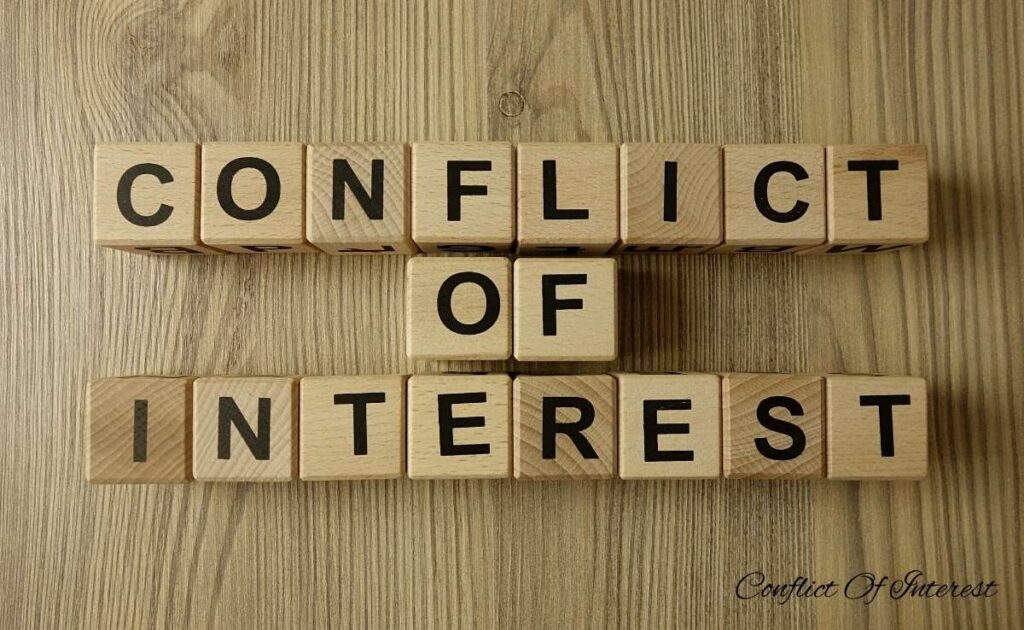An institutional conflict of interest tends to happen when an agency’s or a structural formal’s budgetary priorities contradict behavior on its behalf and may impact or appear to interfere with the institution’s studies, schooling, patient practice, business dealings, and perhaps other actions.
The Duke Organizational Conflict of Interest Review Board reviews as well as manages organizational potential conflicts of interest. Whenever it comes to disputes of involvement at Duke University, the entity is constrained by the Institutional Disagreement of Interest Policy, which was endorsed by the Duke University Governing board.
ICOI Overview
When a campus’s commercial interest (e.g., assets retained by the higher education institution in a corporation) has the prospect to stereotype studies undertaken by its personnel or students, or generates an unconscionable exposure to human subject matters, this is alluded to as an organizational confrontation of intrigue.
Such disputes happen most commonly when proposed research directly benefits an outside organization by evaluating, justifying, trialing, or testing a discovery, item, drug, customer experience, or new tech, and the campus has a monetary stake in that external organization.
These vested interests encompass but are not restricted to, obtaining registration payouts or licensing fees from an external institution or owning a stake in a third-party institution.
ICOI Boundaries – The Extent Of The Application
Interest conflicts may indeed emerge when establishments pursue and accept promotional products or subsidies, such as an advantaged academic couch or an offer for a specialist organization to create clinical research guidance.
Further to that, organizational conflicts of interest arise when senior government officials functioning on behalf of the college have individual economic interests that might be influenced by executive decisions.
For example, a divisional chair or dean with a substantial ownership interest in a healthcare device business may make judgments regarding university consultations and promotional offers, or the allocation of workplace or research facility space, that enhance the company’s profitability while jeopardizing the organization’s cumulative investigation, instructional, or diagnostic objective.
Extent Of ICOI
There has been less substantiation of organizational conflicts of passion since they have not obtained quite so much consideration as independent potential conflicts.
The working group unearthed slightly extensive data regarding the extent and essence of educational healthcare centers’, professional organizations, social service agencies, as well as other political bodies’ relationships with formulations, medical instruments, and biopharmaceuticals.
Such connections may include installments and rewards to an establishment, ownership concentration preferences in businesses, intellectual property rights, and government ministers’ interactions (for instance, assistance in a company’s management).
Conflicts of interest emerge from supplier repayment methodologies, whether they engage premium for delivery, potential disbursement per particular instance, charge for achievement, or even other accommodations for both establishments and individual citizens who would provide healthcare coverage.
Furthermore, conflicts may arise as a result of supplier shareholdings, such as a hospital’s possession of conglomerate specialty centers to which its clinicians refer physicians.
Particular Difficulties In Handling Institutional Conflicts Of Interest
Despite the fact that no methodical investigation on organizational disputes of intrigue or the consequences of organizational procedures was found, the advisory board recognized numerous difficulties in handling such squabbles. One difficulty is finding good governmental business interests and quarrels.
No private individual or agency, especially in academic institutions or other major organizations, may be aware of all such preferences. Those in charge of labeling partnerships may need to study multiple aspects of the establishment to compile a list of pertinent preferences and connections.
In certain ways, interacting with governmental conflicts of passion may be more challenging than handling individual conflicting interests.
Individual conflicts in financial banks, including those academic institutions, healthcare centers, and significant community hospitals, typically go through several thresholds of evaluation and entail officials who are relatively isolated and do not have anything to profit individually from the supplementary interests involved.
An official inquiry into organizational potential conflicts, on the other hand, maybe challenging because organizational deputies may benefit obliquely from the potential conflicts of involvement and might be hesitant to interrogate prevailing or postulated connections with corporations that appear likely to increase the institution’s economic public assistance.
FAQs
An institutional conflict of interest tends to happen when an agency’s or a structural formal’s budgetary priorities contradict behavior
The Duke Organizational Conflict of Interest Review Board reviews as well as manages organizational potential conflicts of interest.
Conflicts of interest emerge from supplier repayment methodologies, whether they engage premium for delivery or potential disbursement per particular instance.
These vested interests encompass but are not restricted to, obtaining registration payouts or licensing fees from an external institution or owning a stake in a third-party institution.
Organizational conflicts of interest arise when senior government officials functioning on behalf of the college have individual economic interests that might be influenced by executive decisions.

